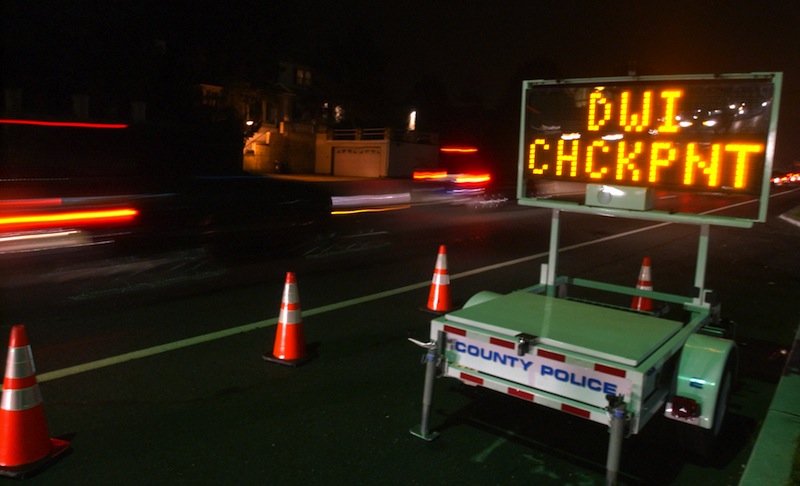If you get pulled over for suspicion of Driving While Intoxicated (DWI), you are given the option to take a breath test to find out what your blood alcohol level (BAC) is, what would you choose? Picture this: if you were pulled over under the suspicion of Driving While Intoxicated (DWI), and you were faced with the choice to take a breath test to determine your Blood Alcohol Content, what would you choose? Would your choice be different if you knew that you could face fines and the loss of your license?
You can’t be forced to take a Chemical Breath Test (CBT), and a lot of people choose to refuse. According to News 4, 1/3 of drunk driving suspects in Erie and Niagara counties refuse the test, which is higher than the state and national refusal averages and other counties in Western New York.
During a DWI stop, law enforcement will gather other evidence of intoxication before asking for a breath sample. If a driver refuses a CBT, the prosecutor will then utilize observations known as Common Law indications of intoxication: these can include slurred or staggered speech, erratic driving, and poor performance on Standard Field Sobriety Tests (SFST).An Analysis of 2014 DWI convictions showed that most DWI suspects are convicted of Driving While Ability Impaired (DWAI), which is a traffic infraction, as opposed to the misdemeanor charge of DWI. Interestingly, 66% of drivers who refused the CBT received the lower charge of DWAI compared to 61% of those whose took the breath test.
Hand held devices known as Preliminary Breath Tests (PBTs) will tell the officer if a breath sample tests positive for alcohol; however, that sample is not admissible as evidence most of the time. A breath sample must be obtained through the use of a chemical test to be completely admissible in court; an officer will usually arrest a suspect and transport them to a police station and request a chemical sample.
The New York State Police, which is one of the top police agencies in Western New York for DWI arrests, has its officers recite from a card containing DWI warnings. The officer informs the suspect of the charge they are being arrested for. The suspect is advised that they will be asked to submit to a chemical test to determine a suspect’s BAC. Law enforcement also advises that a refusal will result in the revocation of a license regardless of whether a suspect is found guilty of the charge(s) for which they are being arrested. While refusing a chemical test makes it harder for the state to prove their case, it does not come without consequences. . The DMV will first schedule a hearing, to be heard by an Administrative Law Judge (ALJ), to determine if you were adequately warned about the consequences of refusing. If the ALJ finds that your refusal was “valid”, i.e. you did refuse despite being warned of the consequences, then your license will be suspended from that day for at least a year. A refusal can also be introduced into evidence at trial, proceeding, or hearing. Refusing a chemical test could also limit the possibility of negotiating a reduction in charges. There are counties in New York, such as Albany and Nassau, which will not offer any reduction if a suspect refuses a chemical test.
Additionally, the DMV will assess a base civil penalty of $500 for a valid refusal, and could assess more depending on your driving record. Not to mention, the implications of a refusal could work against you at a trial. Would you believe someone was innocent if they refused to take a test that could have proven their innocence? While an experienced DWI attorney can challenge these notions in court, it is still a fact that a jury could use to convict you.
Finally, any license suspension or revocation period stemming from a conviction would be added in addition to the DMV revocation. For example, a DWI conviction would result in a 6-month license revocation, which would run concurrently (alongside) with the DMV 1-year license revocation. These penalties are quite stiff, and some organizations want to extend the duration of these penalties. Statewide prosecutor organizations plan to push for reform to reduce the instances of refusals. Former District Attorney Clark said he supports increasing the license revocation period to two years for those who refuse a chemical test. “We look to the DMV or the legislature to make the sanctions for refusal greater than either an un-appealable loss of license for a stated period of time or loss of license for a greater period of time than is presently on the books,” said Clark.
Clark believes, “if you tell someone they will lose their license and there’s no appeal to it for a period of two years, that’s a really, really strong sanction and that would cause them, I would think, to really think twice before they decided to refuse the test.”
After reading this article, will you refuse to take a breath test if you were pulled over for suspected DWI?
The exclusive purpose of this article is educational and it is not intended as either legal advice or a general solution to any specific legal problem. Corporate offices for Nave DWI Defense Attorneys are located at 432 N. Franklin Street, Suite 80, Syracuse, NY 13204; Telephone No.: 1-866-792-7800. Prior results do not guarantee a similar outcome. Attorney Advertising.





